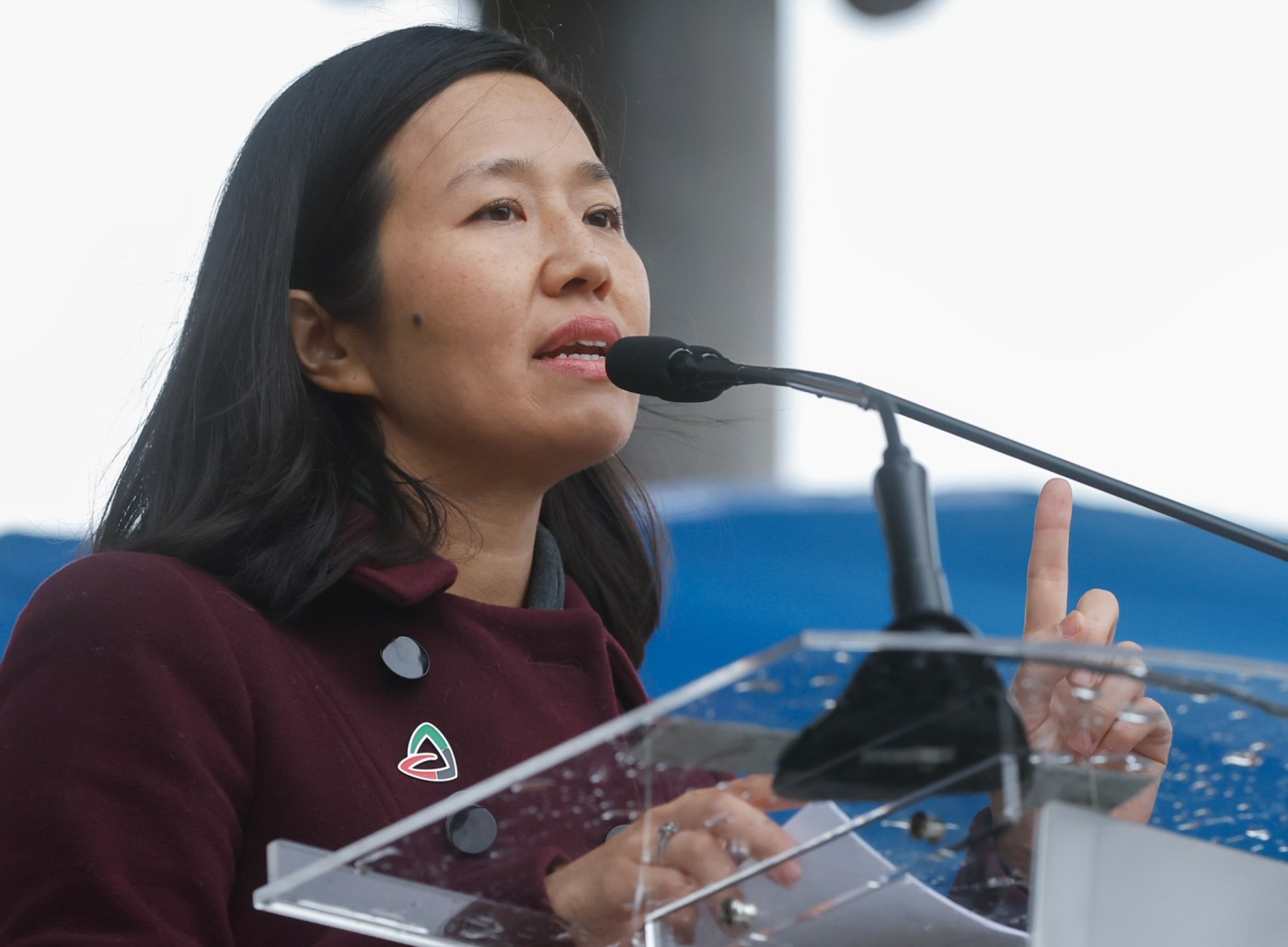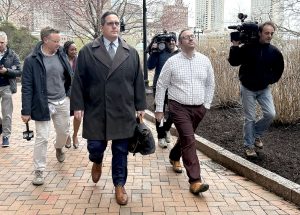
Battenfeld: Wu failures on Boston police accountability and transparency
Whatever happened to police accountability and transparency in the Wu administration?
Arbitrarily withholding names from the public in high profile incidents. Delaying release of accident reports. Repeatedly dragging its feet on public records.
That doesn’t sound like accountability, it sounds like secrecy worse than the previous mayoral administration. Mayor Michelle Wu talks a big game when it comes to accountability, but the Boston Police Department’s actions don’t match the rhetoric.
The mayor promised a more open and accountable police department when she was elected, building on the Office of Police Accountability and Transparency that was established in a 2020 ordinance when she was on the city council.
“OPAT works to strengthen the relationship between the Boston Police Department and Boston’s communities by increasing trust, transparency and accountability,” her office said in a statement last year when she appointed Evandro Carvalho, a public service attorney, as executive director.
The trust didn’t last long.
OPAT already has a long backlog of complaints, and its website was not even accessible to the public for months, according to Boston 25 News.
In 2023, Wu pushed for millions of dollars in added funding for the Boston Regional Intelligence Center’s gang database, angering criminal justice reform advocates and reversing a pledge Wu made when she was running for mayor to abolish the unit.
The city council’s progressives blocked the move, but Wu insisted on pushing $3.4 million in grants to fund the intelligence center’s “anti-terrorism, anti-crime, anti-gang and emergency response.”
Just a year later, hundreds of residents demanded answers from Wu and BPD about the demotion of veteran Officer Eddy Chrispin, who was booted down to sergeant detective from Deputy Superintendent.
The demotion came after Chrispin was appointed to the state agency overseeing criminal justice reform.
BPD spokesperson Mariellen Burns said at the time that Chrispin’s appointment to the state board was a “factor” in his demotion “but not the only factor” and refused to elaborate.
Wu said in an interview with GBH that she supported Police Commissioner Michael Cox’s decision to demote Chrispin because of a “conflict of interest” in serving both on the BPD command staff and the state board.
Earlier this year, Boston police under the Wu administration refused to release body cam footage from officers who responded to a motor vehicle accident in East Boston. Police declined to give the driver, an off-duty detective, a breathalyzer test despite evidence that he was intoxicated.
Police cited an exemption allowing them to withhold records if it would jeopardize an investigation – an excuse BPD has used before in other public records requests.
Just recently, the BPD under Wu refused to turn over the name of the truck driver who careened into a sidewalk and a restaurant in busy Chinatown, injuring five pedestrians.
The driver, who struck multiple poles before the vehicle came to a stop at the restaurant, was hospitalized and one person was upgraded from critical to fair condition. The truck had been rented by a commercial company.
Cox said the investigation suggested it was a tragic accident, and police were investigating whether it was related to the driver’s medical condition. But no word on the identification of the box truck driver who lost control of the vehicle.
“We’ll do everything that we can to come to a full understanding of the facts of this investigation and make a determination as to whether or not there’s any liability here,” Suffolk County DA Kevin Hayden said.
The BPD under Wu is also refusing to release results of an accident investigation resulting from a police chase that ended with the deaths of three teenagers, nearly a year and a half after the accident took place. The BPD’s Internal Affairs Division says it is still investigating the crash, and the department won’t release findings on one of the officers involved in the chase.
“When there’s a finding in the case, there’s a finding and it’s public,” a BPD spokesperson told the Boston Globe. “An extensive review process takes place in each case, we give it the time and care required to get it right.”
And there are now rumors of Boston police following other big cities and going toward encryption of police communications.
All of this adds up to a poor record of transparency under Wu. The public deserves a lot more.


